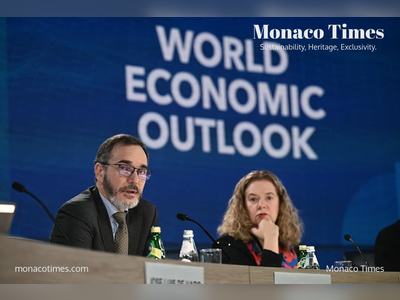Trump Reinstates Travel Restrictions for Citizens from Twelve Countries
New restrictions on immigration come as part of ongoing national security measures.
Starting June 9, 2025, the United States will implement a ban on entry for citizens from twelve countries as part of efforts to 'protect' national security, according to an announcement by President Donald Trump.
This move has been characterized as a reintroduction of measures previously enacted during his first term in office.
The countries affected by the ban include Afghanistan, Myanmar, Chad, the Republic of the Congo, Equatorial Guinea, Eritrea, Haiti, Iran, Libya, Somalia, Sudan, and Yemen.
Additionally, citizens from seven other nations will face restrictions related to visa issuance; these countries are Burundi, Cuba, Laos, Sierra Leone, Togo, Turkmenistan, and Venezuela.
In a statement regarding the decision, President Trump emphasized the responsibility of the U.S. president to act in order to safeguard the national security and interests of the United States and its citizens.
He stated that the measures are intended to protect the U.S. from foreign terrorists.
The Trump administration cited the inclusion of these countries on the list due to ineffective governance that fails to ensure adequate traveler screening and a tendency of some individuals from these nations to overstay their visas.
The announcement reference recent events, including a terrorist attack in Boulder, Colorado, where the assailant was an Egyptian national who had overstayed his visa.
The President’s comments were underscored by remarks regarding the perceived dangers of allowing foreign nationals who have not been properly vetted into the country.
Exceptions will be made for holders of specific visas and individuals whose travel to the U.S. serves the national interest.
High-profile events such as the 2026 FIFA World Cup, which will take place in the U.S., Mexico, and Canada, as well as the 2028 Summer Olympics in Los Angeles, will not be impacted by these new restrictions.
In response to the announcement, the Venezuelan government warned its citizens about the heightened risks of traveling to the United States.
Critics of the reinstated ban, including representatives from the Iranian American community and human rights organizations, described the measures as discriminatory and damaging to many American families.
Statements included concerns that the regulations may perpetuate racial bias, with assertions that the policy aims to revert America to a less inclusive state.
President Trump's current ban echoes the previous immigration measures that drew widespread protests and legal challenges when first introduced in 2017. The administration maintains that these actions are founded on national security considerations.
This move has been characterized as a reintroduction of measures previously enacted during his first term in office.
The countries affected by the ban include Afghanistan, Myanmar, Chad, the Republic of the Congo, Equatorial Guinea, Eritrea, Haiti, Iran, Libya, Somalia, Sudan, and Yemen.
Additionally, citizens from seven other nations will face restrictions related to visa issuance; these countries are Burundi, Cuba, Laos, Sierra Leone, Togo, Turkmenistan, and Venezuela.
In a statement regarding the decision, President Trump emphasized the responsibility of the U.S. president to act in order to safeguard the national security and interests of the United States and its citizens.
He stated that the measures are intended to protect the U.S. from foreign terrorists.
The Trump administration cited the inclusion of these countries on the list due to ineffective governance that fails to ensure adequate traveler screening and a tendency of some individuals from these nations to overstay their visas.
The announcement reference recent events, including a terrorist attack in Boulder, Colorado, where the assailant was an Egyptian national who had overstayed his visa.
The President’s comments were underscored by remarks regarding the perceived dangers of allowing foreign nationals who have not been properly vetted into the country.
Exceptions will be made for holders of specific visas and individuals whose travel to the U.S. serves the national interest.
High-profile events such as the 2026 FIFA World Cup, which will take place in the U.S., Mexico, and Canada, as well as the 2028 Summer Olympics in Los Angeles, will not be impacted by these new restrictions.
In response to the announcement, the Venezuelan government warned its citizens about the heightened risks of traveling to the United States.
Critics of the reinstated ban, including representatives from the Iranian American community and human rights organizations, described the measures as discriminatory and damaging to many American families.
Statements included concerns that the regulations may perpetuate racial bias, with assertions that the policy aims to revert America to a less inclusive state.
President Trump's current ban echoes the previous immigration measures that drew widespread protests and legal challenges when first introduced in 2017. The administration maintains that these actions are founded on national security considerations.











